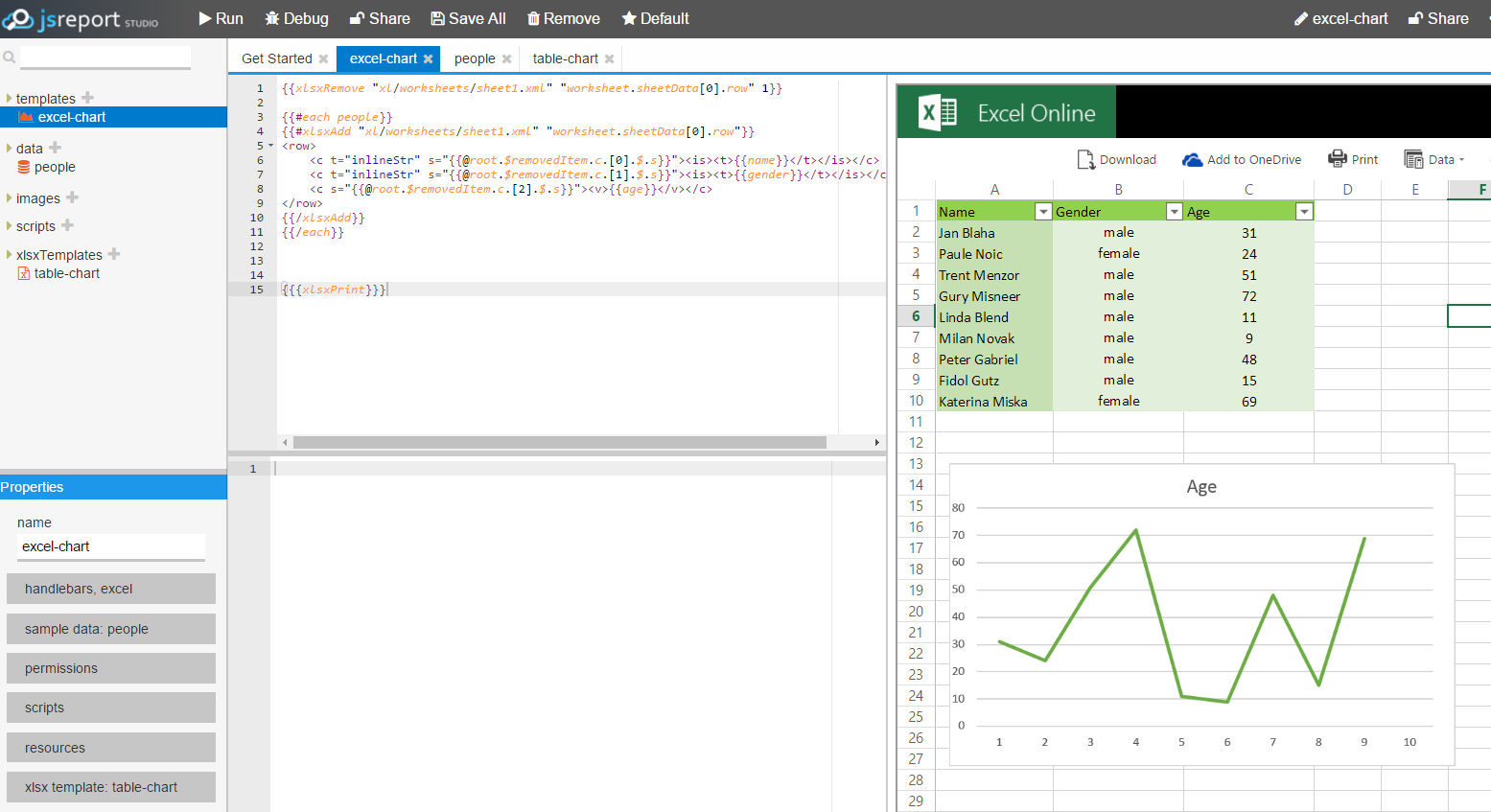jsreport 1.0 is here
06-24-2016 17:30jsreport 1.0 is now available in npm and you can start installing it in the common way:
npm install jsreport --production
You can also find upgrade instructions here.
See some of the many improvements jsreport 1.0 brings.
New studio
You can be looking forward for completely reworked jsreport studio. The new studio feels more like an IDE and it should dramatically improve the productivity during reports development.

Excel with charts or images
Based on the user requests we also reworked xlsx recipe and added support for images, charts or even pivot tables. See the xlsx recipe docs for details.

Startup time
jsreport 1.0 server now starts usually in just 2 seconds. The slow startup of jsreport 0.x was mainly caused by searching for applicable extensions in the application directory. This is mitigated in 1.0 with caching extensions' locations.
Compiled template caching
jsreport 1.0 significantly improves the performance of templating engines evaluation using cache for the compiled templates. You can automatically benefit from it if you use http-server or in-process strategy for the server scripts evaluation:
{
"tasks": {
"strategy": "http-server"
}
}
jsrender custom tags
The fans of jsrender engine can now enjoy using helpers as custom tags.
function boldp(val) {
return "<p><b>" + this.tagCtx.render(val) + "</b></p>";
}
{{boldp}}
This is inside our block content:<br/>
<em>{{:title}}</em>
{{/boldp}}
Last failed logs
The new jsreport studio includes startup page with more relevant information now. You can easily check the logs for last requests or quickly open last edited templates.

Child templates parameters
You can now pass additional parameters to child templates or override its properties through the child template tag.
{#child myChildTemplate @template.recipe=html @data.paramA=foo @options.language=sp}
And more... upgrade and see it yourself.